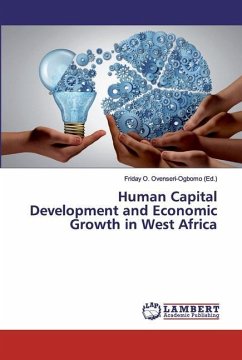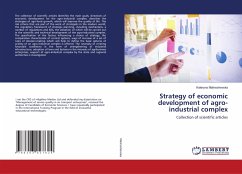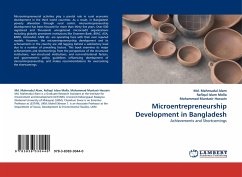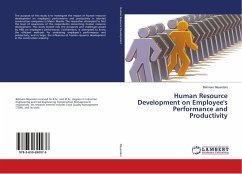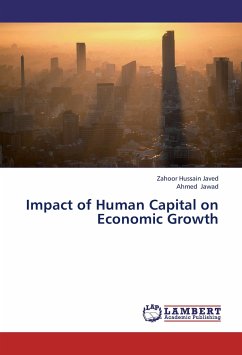
Human Capital and Industrial Development
The Case of the Garment Industry in Bangladesh
Versandkostenfrei!
Versandfertig in 6-10 Tagen
39,99 €
inkl. MwSt.

PAYBACK Punkte
20 °P sammeln!
In developing countries, poverty alleviation through the creation of employment opportunities in the manufacturing sector can be achieved by developing industrial clusters. This is because, industrial clusters inherently create economies of agglomeration, and economies of agglomeration enhance producers performance and enable producers to adopt necessary steps to further development. Most of the industrial clusters in developing countries have, however, performed poorly relative to what appear to be their growth potentials. In searching for the decisive factors that affect the dynamic developm...
In developing countries, poverty alleviation through the creation of employment opportunities in the manufacturing sector can be achieved by developing industrial clusters. This is because, industrial clusters inherently create economies of agglomeration, and economies of agglomeration enhance producers performance and enable producers to adopt necessary steps to further development. Most of the industrial clusters in developing countries have, however, performed poorly relative to what appear to be their growth potentials. In searching for the decisive factors that affect the dynamic development of a cluster, this study, by using information from the highly successful garment clusters in Bangladesh, emphasizes that traders, who are attracted to garment clusters due to agglomeration economies, substantially contribute to the expansion of clusters by enhancing the division of labor in clusters. This study further empirically demonstrates that highly educated and formally trained producers lead the further development of garment clusters by adopting upgrading efforts.



